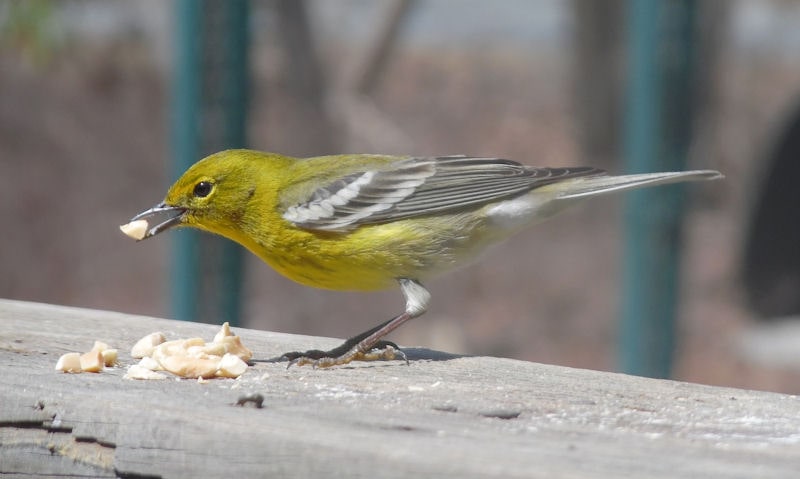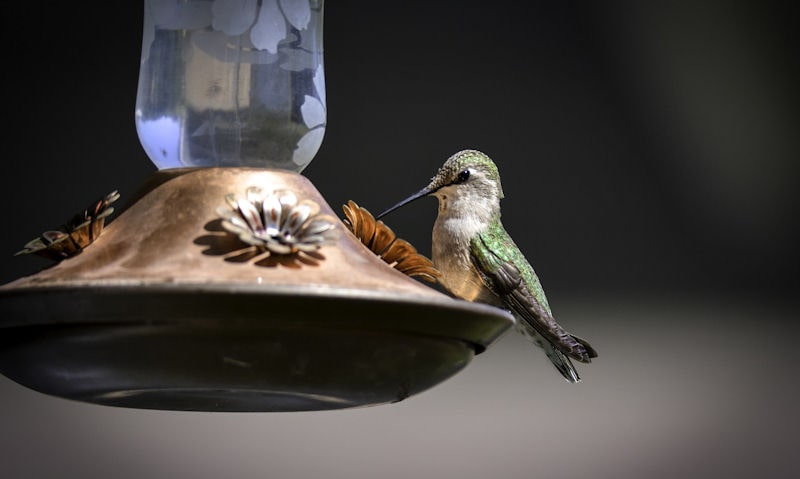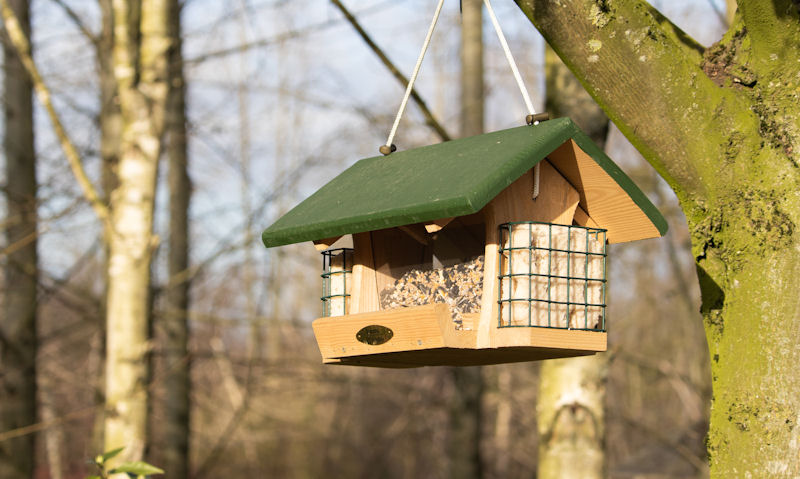Can wild birds eat salted peanuts
What you must understand about any pet or wild birds, is that none have the metabolism to break down salt, and as a result all salty foods must be avoided.
Under no circumstances can wild birds eat salted peanuts. Sure a small amount can cause no harm yet its offering extra salted peanuts that no one knows when to say enough is enough. Birds can't metabolize salt in foods, and as a result the salt contents will cause ill health or death in wild birds.
I'll say it again to be sure you hear it loud and clear, do not feed salted peanuts to wild birds, as the effects can lead to the unthinkable.
Wild birds do sometimes feed on a very, very small amount of salt once in a while, like when House Sparrows eat fries off the ground, yet to always feed salted fries to the same birds will result in death.
Specialty plain peanuts are regularly sold as wild bird peanuts of which, they will never be baked or boiled in salt.
Salt is highly toxic to wild birds, just as it is with all animals, thus you'd want to steer well clear of regular people food and salted peanuts intended for humans.
Regardless, wild birds will often be fed on original jelly or salted peanut butter in jars that do contain large amounts of salt. Often though wild birds will feed on a small amount that will hopefully avoid long term damage.
Even so, who's to say the peanut butter-eating wild birds don't go on to suffer a painful death later, as there's no way of monitoring them in the wild.
Don't get too experimental with our wild birds because in time, you will accidentally feed them on salted treats.
What to feed wild birds in our backyard will mostly involve unsalted, plain boring peanuts with similar unsalted, flavorless seed mixes.
Birds can practically eat all kinds of nuts providing their salt-free with no special flavors or coatings.
Salt is BAD for wild birds
Our backyard birds have an extremely sensitive digestive system, of which they're unable to break down certain types of food.
In salted peanuts, wild birds cannot metabolize salt which means its remains in their bodies, which will lead to ill health or death later.
While wild birds feed on some salted kitchen scraps what people provide outside, this isn't really enough to do any visible harm. With that, wild bird are unlikely to come across an harmful amount of salt, foraged for in the wild.
People will feed wild birds on regular peanut butter which does contain salt, but because wild birds eat less of it, there's nothing to worry about.
Similarly, Orioles in particular will feed on our grape jelly that is provided with or without salt.
So you see wild birds bodies haven't adapted to the kind of harmful ingredients people will consume daily - and as a rule, for animals to consume a lot of salt is extremely harmful to their health.
Along with salted peanuts that should never be fed to wild birds or pets even, this also goes for salt found in chocolate, other junk foods, and of course roasted peanuts.
Refer to unsalted peanuts only
When feeding wild birds on a mix of peanuts you can buy in-store or at pet shops for example, make it the unsalted kind at all times.
Unsalted peanuts exist in health food isles of supermarkets or in specialty stores; yet wild bird peanuts sold in bulk in pet stores or in department stores, will be the safest peanuts you can feed wild birds.
Its easy to provide wild birds a small amount of salted peanuts but you just know people will go to far.
With that in mind, I can't emphasis the need to only feed wild birds on unsalted peanuts.
To play it safe, you will want to provide Blue Jays, Woodpeckers and Chickadees especially, on peanuts in their shells still as the quality is not only preserved - but not a single pinch of salt will contaminate the peanuts locked inside of their shell.
Avoid any kind of salted peanuts you now know is poisonous to our wild birds, while supplying them on bulk-bought wild bird peanuts only.
Avoid people nuts with any flavors
Always play it safe when it comes to accidentally poisoning wild birds who feed on your bird feeders, by not using any kind of peanuts intended for people.
That goes for health food peanut selections too, just because its sold as healthy it can still be roasted in a little salt added to the boiling water.
With that, absolutely any kind of flavored peanuts are out of bounds because all people peanuts that have flavors; they must all be prepared in salt someway or another to create that sweet nutty taste.
Example of flavored nuts are plain roasted peanuts or indeed spicy options.
What you must avoid providing wild birds out in the yard is all special coated peanuts that can be dipped in chocolate of course, along with crispy sweet chilly or cracker-like coatings.
None are safe for wild birds, including pet Parrots or Budgies who will suffer the same fate as backyard birds.
Summary
To be completely clear, salt is very toxic to wild birds and therefore any salted peanuts offered to wild birds, would result in our favorite songbirds being poisoned.
Salt cannot be broken down by wild birds and as result, the salt will do serious damage to wild birds organs, which will eventually lead to them failing.
Obviously, wild birds don't consume salt when foraging in the wild, while rarely fed on salted food in the yard. With that, wild bird feed will never include salted ingredients, knowing full well it will kill wild birds.
As a matter of fact, wild birds can be found to eat a very small amount of salt found in grape jelly for Orioles or real Peanut Butter made available for nut-eating birds like Blue Jays, Woodpeckers, and Nuthatches.
Salt in this kind of food is often taken in small amounts as a result of the salt being low in the ingredients.
Regardless, there's more of a concentration of salt found in peanuts which will lead to serious health issues with wild birds.
Never provide salted peanuts to wild birds, including roasted peanuts, peanuts with special flavors, or coated in chocolate peanuts that are made for people to eat as a treat - and not for wild birds to feed on out in the yard.


